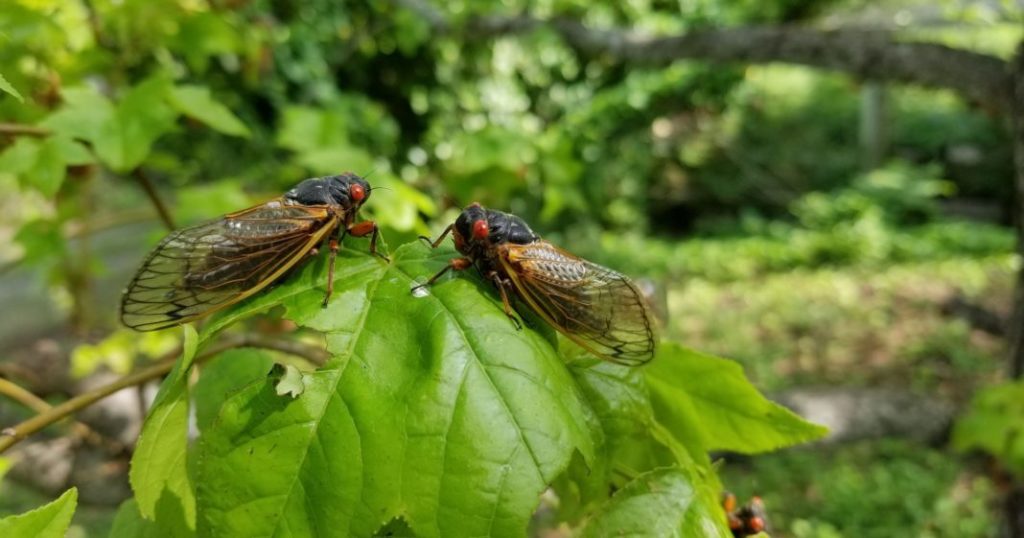I’m a Cicada, I can sing the same old thing, the same old thing. I’m a Cicada, I can sing the same old thing, the same old thing all day – Kevin Gilbert
Summer is here and if we couldn’t tell that by the long hot sunny days, we would know by the cicadas and their chorus.
We often get asked the question, “What is that noise?”
It greets you in the morning and continues throughout the day, getting louder and louder until it reaches a deafening crescendo.
It’s the chorus of the cicadas and they’re singing the song of summer.
What are cicadas?
Cicadas are insects best known for their buzzing noise which can be amplified by multitudes of insects into an overpowering hum.
They are members of the superfamily Cicadoidea and are physically distinguished by their stout bodies, broad heads, clear-membrane wings, and large compound eyes.
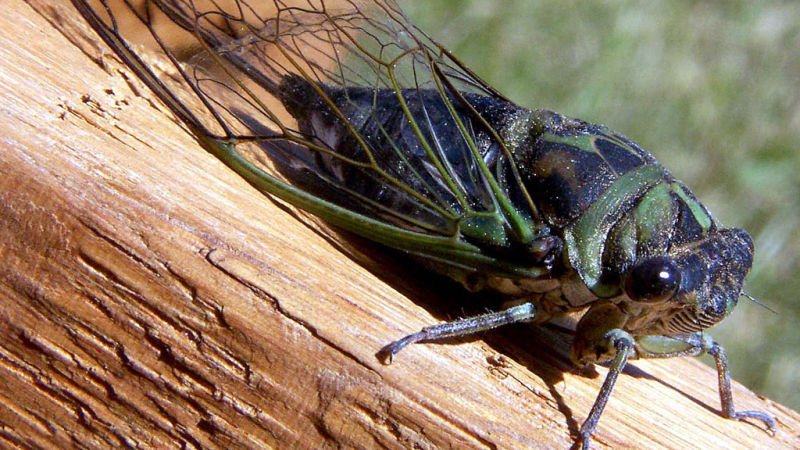
Most cicadas appear every year from late June through August, while others emerge only every few years.
People generally don’t see them because they spend their time in the tree canopy, but their calling card is the buzzing noise they make in short bursts.
Cicada songs

Cicadas usually sing during the heat of the day.
The cicada makes the loudest sound of any insect and can be heard from up to a mile away.
Males produce a shrill buzzing sound with vibrating membranes, called tymbals, on their abdomens.
Each species of cicada has a different song. The sounds vary widely and some species are more musical than others. Though cicada noises may sound alike to humans, the insects use different sounds as mating calls or to express alarm. The loud noise actually repels birds. The cicada’s song is painful to the birds’ ears and interferes with their communication, making it difficult for the birds to hunt in groups. Male cicadas in the same brood will stick together when calling in order to increase the total volume of noise. This reduces the chances of bird predation for the whole brood.
They are hot-blooded singers and the hotter it is the louder they sing!
What are cicadas not?
Grasshoppers, Crickets and Katydids (Orthopterans) are often confused with cicadas because they are relatively large, singing insects. There are many differences between cicadas and Orthopterans, but the easiest way to tell them apart is Orthopterans have huge hind legs.
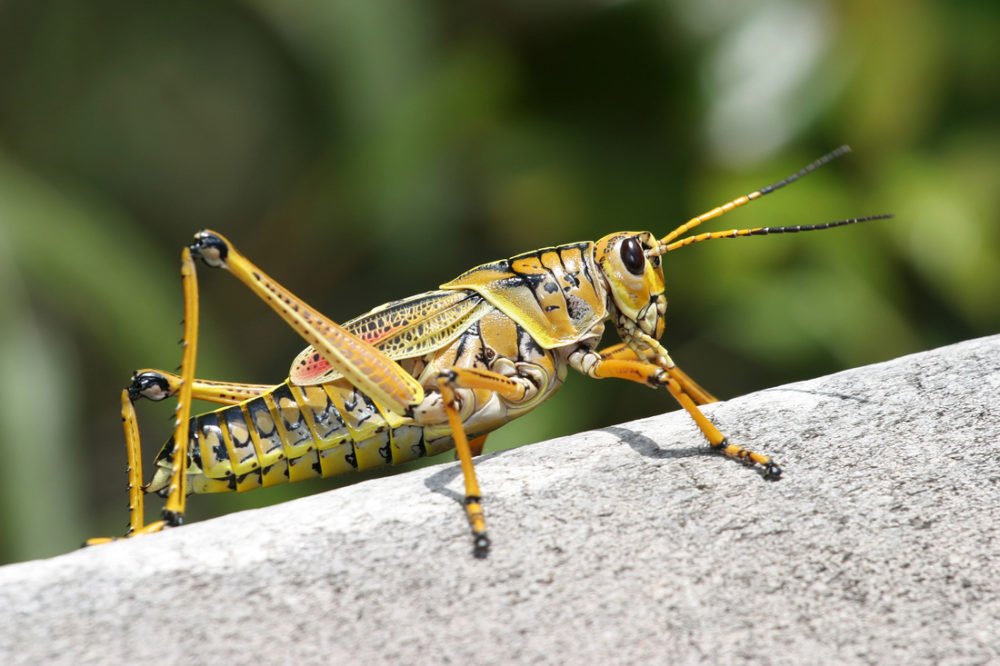
Cicada facts
- There are over 2,000 types of cicadas
- They live on every continent except Antarctica
- They are “cold-blooded” so they rely on air temperature and direct sunlight to warm up, and unless their bodies are warm enough, they won’t be able to fly, sing and mate.
- Only the males sing. They do this in an attempt to find a mate.
- Different species have different songs to attract only their own kind.
- Adult cicadas have short lives, usually only a few weeks.
- Most of their lives are spent as nymphs underground. For some species, this can be up to several years.
- They feed only on plant sap using their piercing, sucking mouthparts.
- Cicadas are harmless to people. They don’t bite or sting.
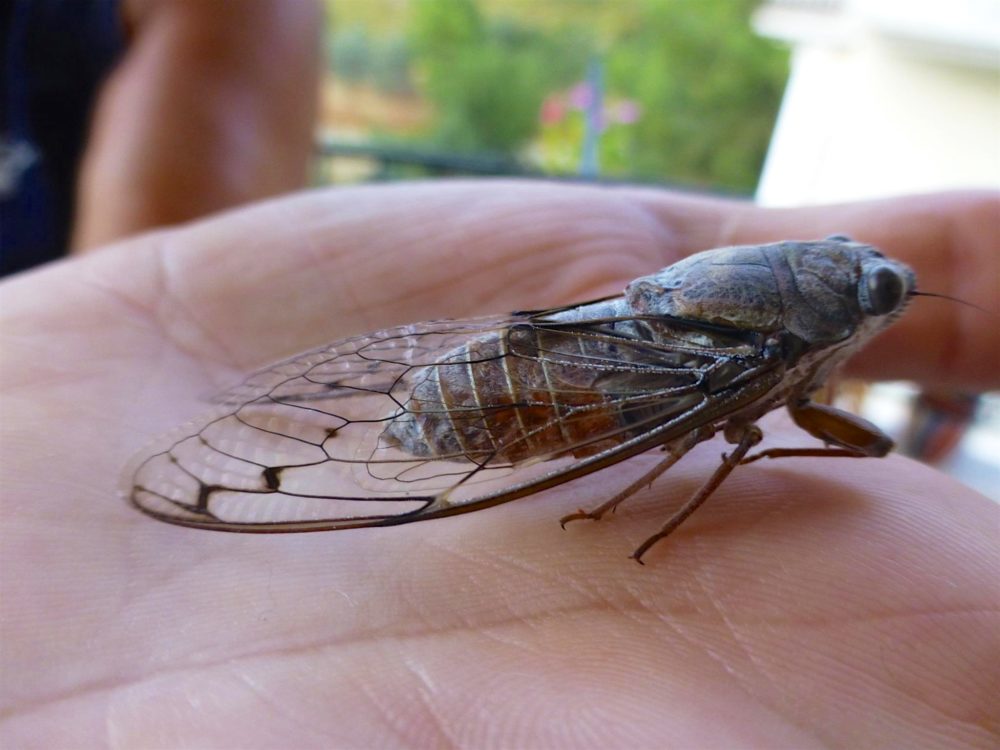
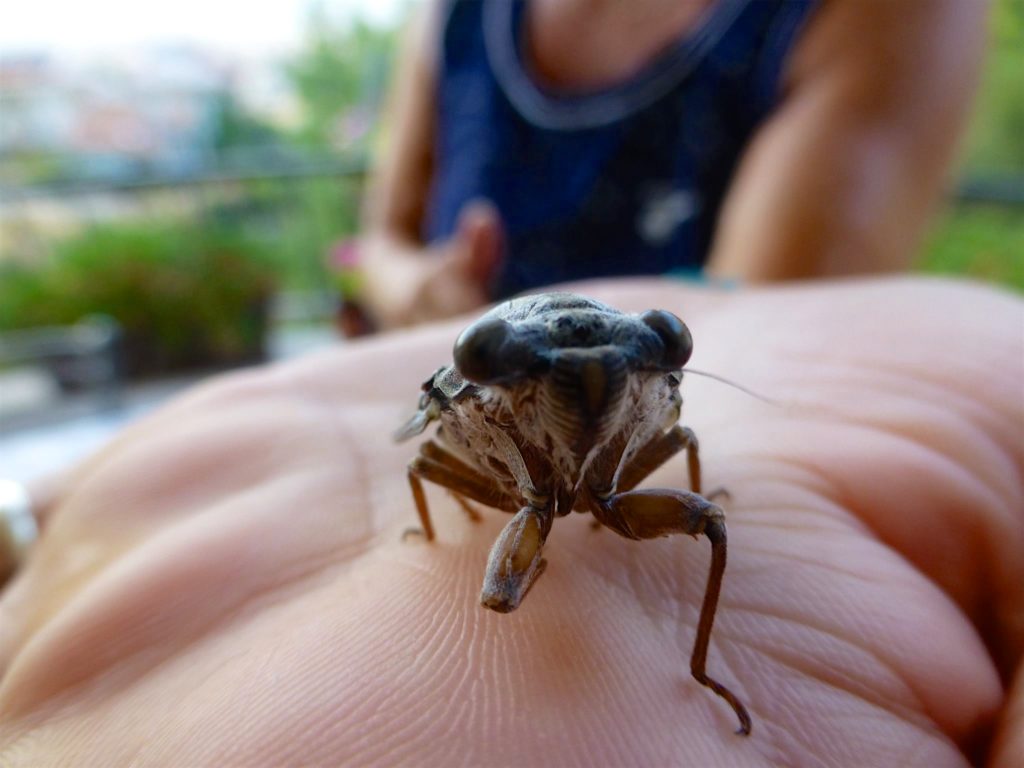
The amazing cicada life cycle
In this video, Sir David Attenborough outlines the amazing life cycle of the cicada.
Anyone for a protein-filled snack?
Have you ever considered eating insects as a source of protein? If your answer is no, now may be the time to reconsider. According to a study by the University of Copenhagen, eating insects is more sustainable than eating livestock. The same study shows that there are over 2,000 species of edible insects, though some are rare. Thankfully, some edible insects are easily available in numbers large enough to supplement global protein needs.
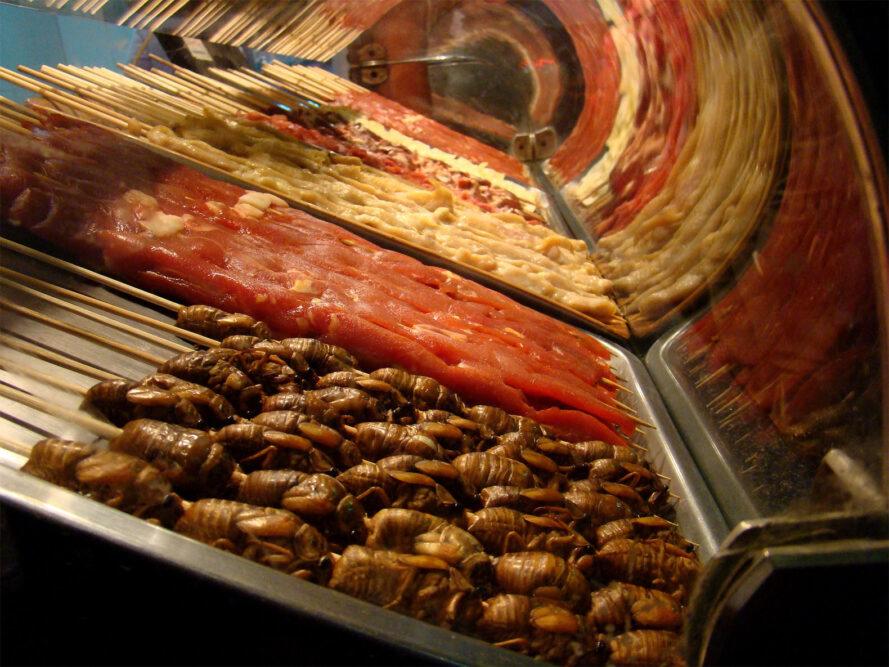
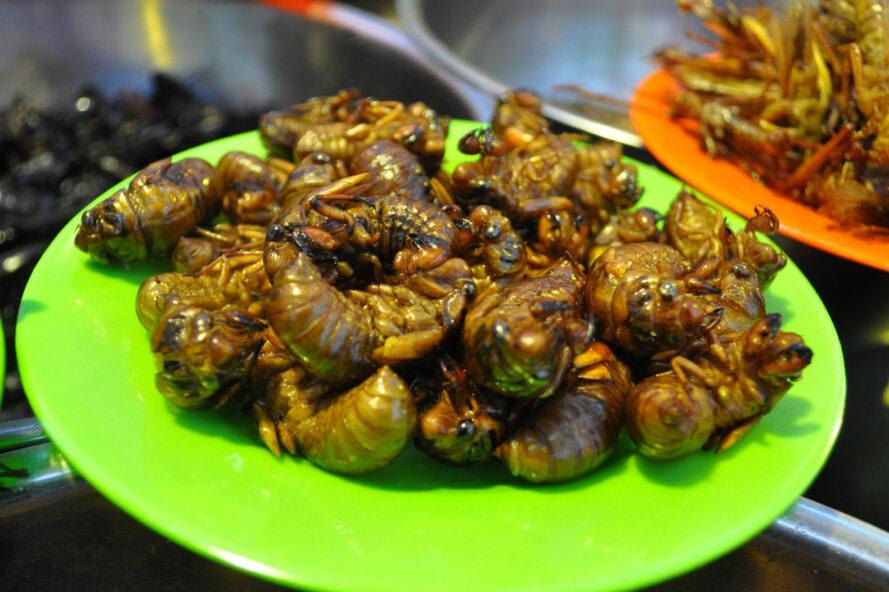
One of the insects seen as a possible remedy for global protein needs is the cicada. Cicadas are safe to eat and among the most nutritious insects. These insects are rich in protein and can be harvested in large numbers during their breeding seasons. – Source: https://inhabitat.com/can-eating-cicadas-solve-the-sustainable-protein-problem/
We prefer listening to the song of the summer…
This article was first published on 4 August 2020.

